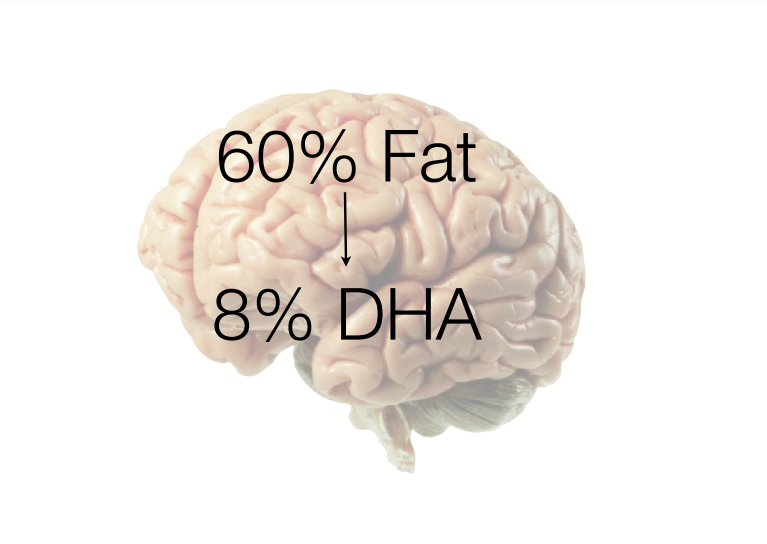FOCUS: A NUTRITION PROGRAM FOR ADHD
WELCOME FRIENDS!
I am so honoured and excited to be on this nutrition journey with you.
STEP 1: Fill out your Nutribody Assessment, ADHD intake form and Dr.Daniel Amen ADD type test.
STEP 2: Make your 1st appointment with Erica and watch the Welcome video.
STEP 3: Order your supplements with Erica once all of your assessments are completed.
STEP 4: Download the Insight timer app. Before every session with Erica, you will listen to the Vagus Nerve Meditation. It is 7 minutes long so make sure to give yourself 10 minutes before our call to complete the meditation.
STEP 5: Come to your first session with your notifications on your phone turned off, Have water ready, a pen and paper ready, and please try not to eat on our call (obviously there are special circumstances to this).
WEEK 1: SUPPLEMENTATION AND WAKE-UP ROUTINES
This week we will focus on how to fold supplements into our daily routine. These supplements are our baseline to support our brains and our bodies for feeling focused and energized. I am a supplement enthusiast and fully support you if you want to take additional supplements. My suggestion is to start out with the baseline so that you can see what is working, and what is not and then you can add on once you have this baseline established.
Here is the list of supplements and the reason they have been chosen. You can purchase them on Fullscript or through me from Atrium Pro.
Omega-3 fatty acids: particularly EPA (eicosapentaenoic acid) and DHA (docosahexaenoic acid), have shown promising benefits for ADHD.
“DHA is vital to communication throughout the brain. Each of the neurons in our brain contains an axon that passes messages away from the cell body to other neurons. These send an electric signal or impulse which then travels down the axon. Each axon is covered in a fatty sheath called myelin, which is made up of DHA. This brain- essential fat helps speed up cell signalling, resulting in speedy communication across our brain networks. Without adequate daily intakes of DHA the chemical messaging process would be less efficient and slower." (V. Gow, 2021. Smart Foods FOr ADHD and Brain Health. p, 45)
Here's how they can be beneficial:
Improved Cognitive Function: Omega-3s are a vital component of brain cell membranes. They help maintain the fluidity and flexibility of these membranes, which in turn supports efficient communication between brain cells. This can lead to improved cognitive functions, including attention, memory, and information processing.
Regulation of Neurotransmitters: Omega-3s are involved in the production and regulation of neurotransmitters, such as dopamine and serotonin, which play a significant role in mood, focus, and impulse control. Proper levels of these neurotransmitters are crucial for managing ADHD symptoms.
Reduced Inflammation: Omega-3 fatty acids have anti-inflammatory properties. Inflammation in the brain can impact cognitive functions and contribute to ADHD symptoms.
Support for Executive Function: Executive function refers to a set of cognitive skills that enable us to plan, organize, initiate tasks, and control impulses. Omega-3s have been linked to the enhancement of these executive functions, which can be challenging for individuals with ADHD.
Next week we will look at how can we ensure we are also getting Omega 3’s from our diet as well.
Vitamins, minerals, amino acids, hormones, and botanical medicine can be used to rebalance our brain chemistry. Our understanding of neurotransmitters has advanced so much that we know which nutrients are needed as cofactors for the enzymes that create, or break down, each neurotransmitter.
Neurotransmitter Function: Zinc is involved in the regulation of neurotransmitters, which are chemical messengers that transmit signals in the brain. Certain neurotransmitters, such as dopamine and norepinephrine, are implicated in ADHD. Zinc's role in modulating these neurotransmitters could potentially impact ADHD symptoms, as dopamine and norepinephrine are known to play a role in attention and focus.
Antioxidant Properties: Zinc is an essential component of antioxidant enzymes that help protect cells from oxidative stress. Oxidative stress has been linked to various neurological and cognitive disorders, including ADHD.
Zinc and the gut lining…
Finding the missing link with Zinc
If you have ADHD and have digestive distress you may want to turn to zinc to help.
Zinc’s role in the gut:
Zinc is essential for maintaining the integrity and function of the gut lining. Its roles in supporting tight junction proteins, immune function, cellular turnover, and anti-inflammatory processes contribute to a healthy gastrointestinal tract. A well-functioning gut lining is crucial not only for digestion and nutrient absorption but also for overall health, as it helps prevent the entry of harmful substances into the bloodstream and supports immune function.
Gut Barrier Function: Zinc is involved in the maintenance of the gut barrier function by supporting the integrity of the cells that make up the lining.
Cellular Structure: Zinc is a key component in the structure of tight junction proteins, which are integral for maintaining the tight seal between cells in the gut lining. These tight junctions help regulate the permeability of the intestinal barrier, ensuring that only nutrients and beneficial substances are absorbed into the bloodstream while preventing harmful molecules from passing through.
Immune System Support: Zinc plays a vital role in immune function by supporting the activity of various immune cells, including white blood cells that help defend against infections and maintain a balanced immune response. A healthy gut lining supported by zinc helps prevent immune system overactivity that can lead to inflammation.
Enzyme Function: Zinc is a cofactor for numerous enzymes involved in various biochemical reactions in the body, including those related to digestion and nutrient absorption. This indirectly supports the health of the gut lining by aiding in the breakdown and absorption of nutrients from food.
Anti-Inflammatory Properties: Zinc has been shown to possess anti-inflammatory properties. Inflammation in the gut can compromise the integrity of the gut lining and lead to conditions like leaky gut syndrome, where the barrier becomes more permeable.



